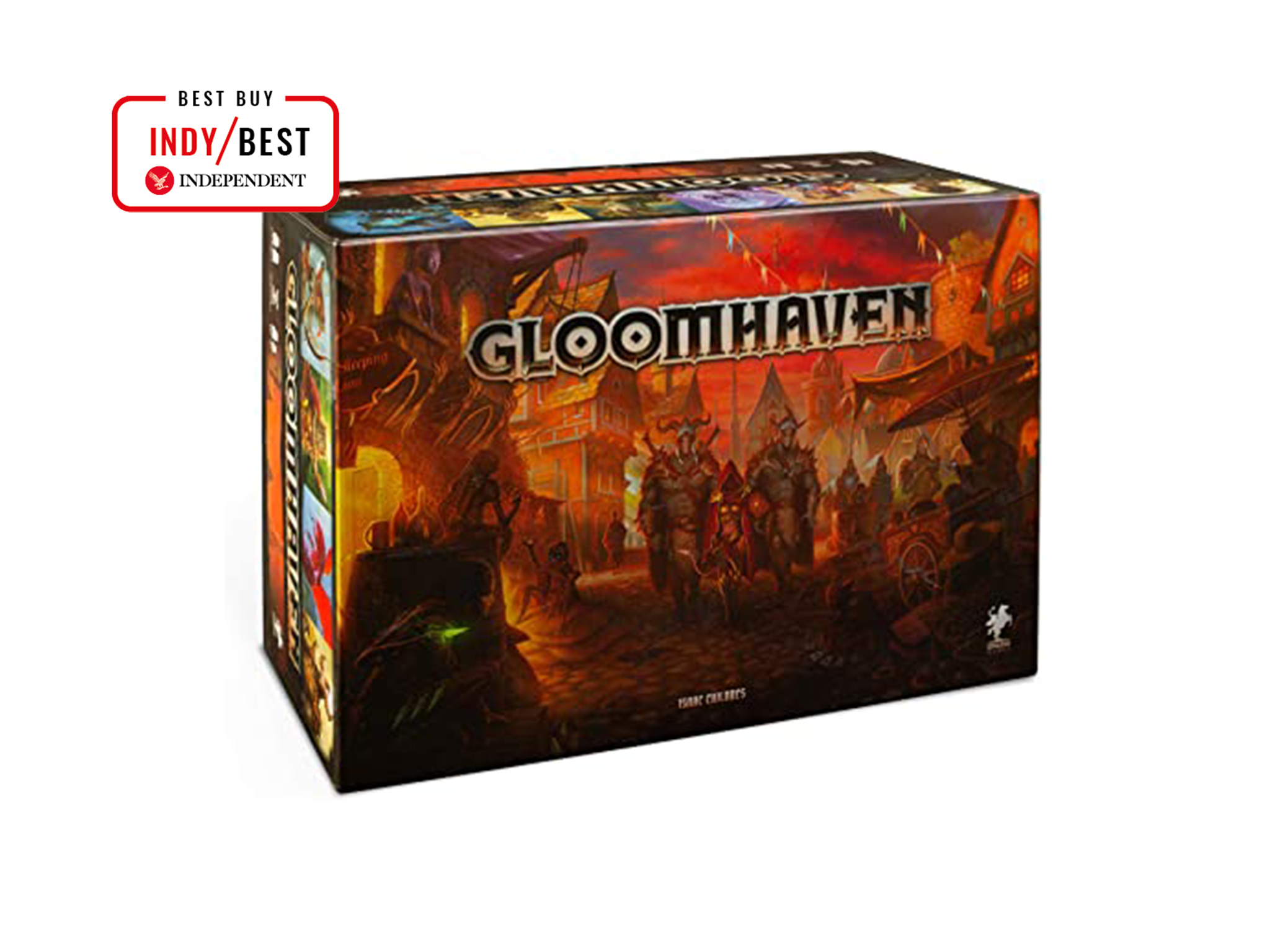
The Independent's journalism is supported by our readers. When you purchase through links on our site, we may earn commission. Why trust us?
11 best solo board games that can be enjoyed by one player
These solitaire experiences are just as fun as playing with friends
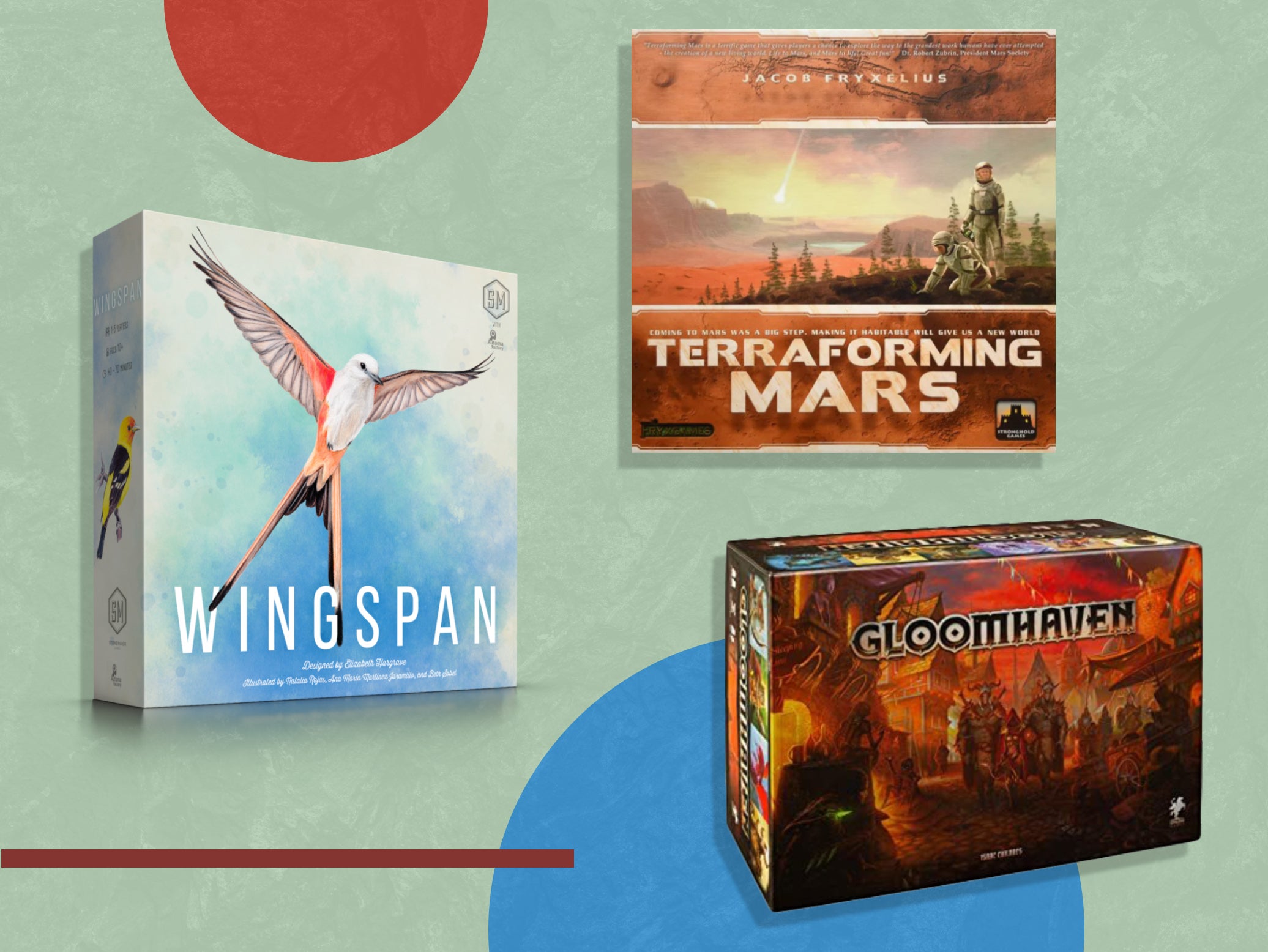
Board games are an excellent way to spend an afternoon or evening socialising with friends around a table. No doubt their popularity has skyrocketed in recent years, not just because of the pandemic but because there’s been plenty of new and familiar classics hitting the shelves.
There really is something for everyone, with games ranging from traditional world-conquering strategy or even ones themed around niche hobbies, like bird watching. But, while there are board games aplenty, it can be difficult to find enough people to play with.
As a social in-person event, rounding up enough players for a quick game can be a painful exercise and that’s before you’ve even had a chance to read the rulebook.
Even if you rally the troops, trying to recount complex turn movements or keep people engaged enough to play can be a challenge in itself, especially for tabletop games that can take hours to work through. So maybe you want to find a game that you can play through by yourself?
Thankfully, there are plenty of tabletop experiences that now come included with a single-player element. Whether you want to play through solo to teach yourself the rules or just want a quiet night in, these are some of our favourite board games that can be enjoyed with just one player.
Read more:
How we tested
Each game on our list was included based on not just the engagement and quality of the gameplay itself, but the contents of the box, including game pieces, cards, instructions and other paraphernalia. While our list is focused on the single-player experiences being offered, we only considered games that could also be played in a larger group, so that if you wanted to take it over to a friend’s house or invite people over to play it, that’s still possible – you won’t find any exclusively solo experiences here.
The difficulty ranking assigned to each entry not only covers how hard it is to play, but also to learn the rules and generally set it up before the game commences. We’ve tried to include a variety of different challenge levels and prices so that players new to tabletops can start things off easy before throwing themselves into more complex games. Here’s the ones to buy ahead of your next games night.
The best single-player board games for 2022 are:
- Best overall – Gloomhaven: £119.99, Game.co.uk
- Best for easy set up – Calico: £29.15, Amazon.co.uk
- Best survival – Robinson Crusoe: Adventures on the Cursed Island: £43.30, Amazon.co.uk
- Best engine builder – Wingspan: £42, Amazon.co.uk
- Best sci-fi – Terraforming Mars: £44.99, Zavvi.com
- Best town builder – Tiny Towns: £36.36, Amazon.co.uk
- Best strategy– Scythe: £49.99, Zavvi.com
- Best horror– Mansions of Madness: £73.95, Amazon.co.uk
- Best fantasy– Lord of the Rings: Journeys in Middle-Earth: £77.10, Amazon.co.uk
- Best escape room – Unlock! Escape Adventures: £22.20, Amazon.co.uk
- Best choose your own adventure – What Next?: £40, Hamleys.com
Gloomhaven

Best: Overall
Rating: 10/10
- Publisher: Celaphofair
- Difficulty: Hard
- Players: 1-4
- Time to play: 30 - 60 minutes (per scenario)
Gloomhaven has been cited as one of the best board games ever made, and for good reason. Its deep, player-driven campaign goes far beyond most other role-playing board games and an evolving narrative gives plenty of reasons to keep returning. Players will make choices along the way, fight stronger enemies improve the town’s prosperity, and even retire their characters once they’ve completed their story arc before taking on a new role.
It’s certainly a good fit for a party of would-be adventurers but it works equally as well as a single-player experience with one person controlling two characters. Each game session can be broken down into a single scenario which makes it much less daunting than the number of pieces would have you believe. Like all good adventure games, it will take time to complete but players will be grateful for the journey.
Calico
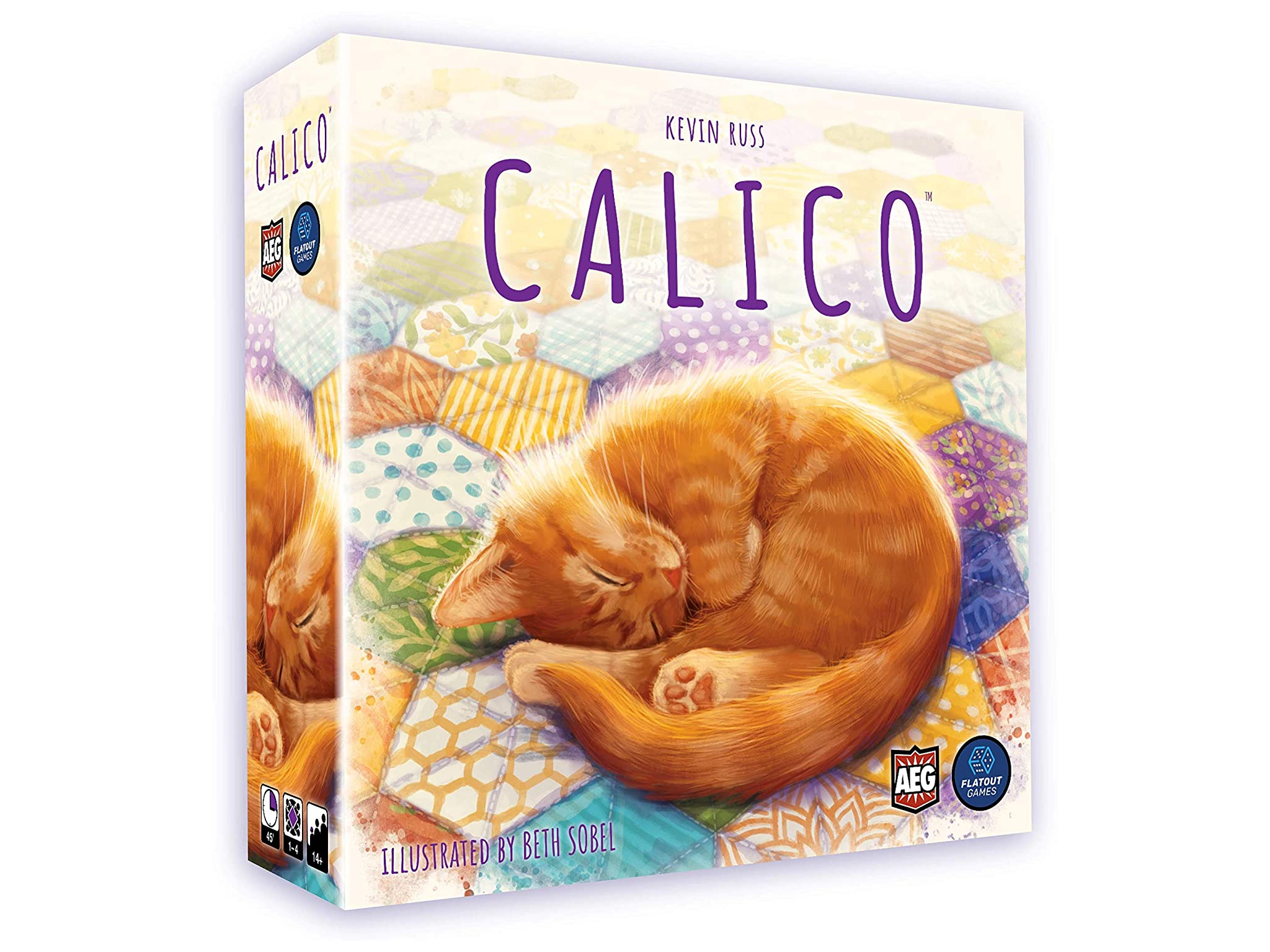
Best: Easy set up
Rating: 8/10
- Publisher: Celaphofair
- Difficulty: Easy
- Players: 1-4
- Time to play: 30 - 45 minutes
Assemble a quilt that will attract the most cats by laying hexagonal tiles on a small board. Points can be gained for matching pattern-types with a particular cat’s preference or simply having three adjacent colours.
It’s an easy game to set up with tiles being stored in a drawstring bag before being laid on the table for players to choose to add to their quilt. Single-player mode works by having each of the tiles moving out of the game like a production line and means there is a constant fresh supply to choose from. Calico is easy to learn and challenges a player’s spatial reasoning and pattern recognition.
A fun little note, the cats featured in the game are based off of each of the game designers’ real-life pets, which is just lovely.
Robinson Crusoe: Adventures in the Cursed Island
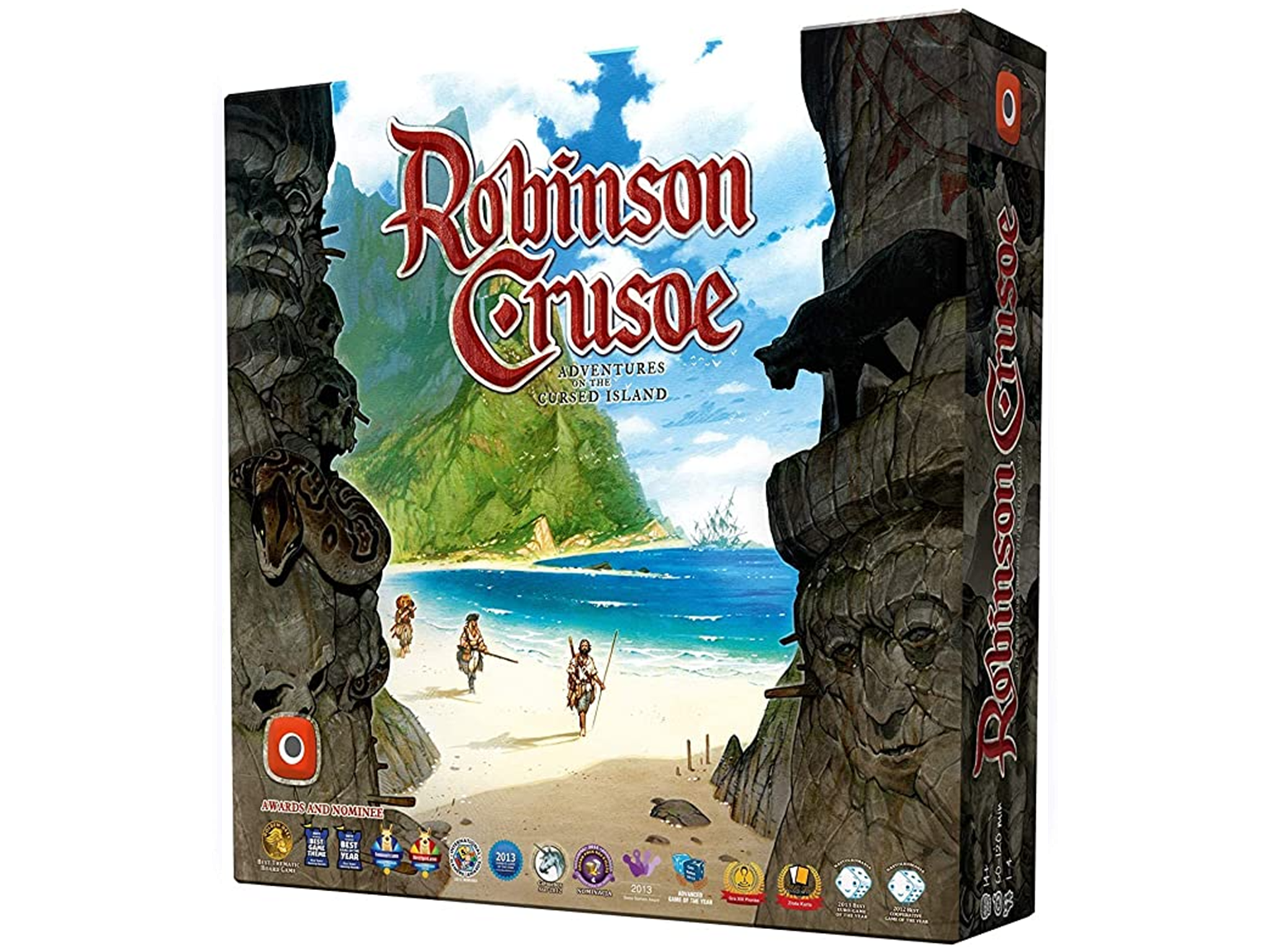
Best: Survival
Rating: 8/10
- Publisher: Portal Games
- Difficulty: Hard
- Players: 1 - 4
- Time to play: 60 - 120 minutes
As a cooperative board game, players assume different roles such as a cook, soldier and explorer. They are stranded on a deserted island and must build shelter, hunt/forage for food and gather resources to survive long enough to be rescued. The survival element is what makes it a worthy solo experience if not for the added authenticity.
There are a number of different scenarios that players can choose from, starting with a basic castaway premise all the way up to escaping an island of cannibals. As more of the island is explored, players can re-establish their base camp to make the most of their new surroundings but tropical storms blowing in or wandering apex predators can easily undo a lot of progress.
Wingspan
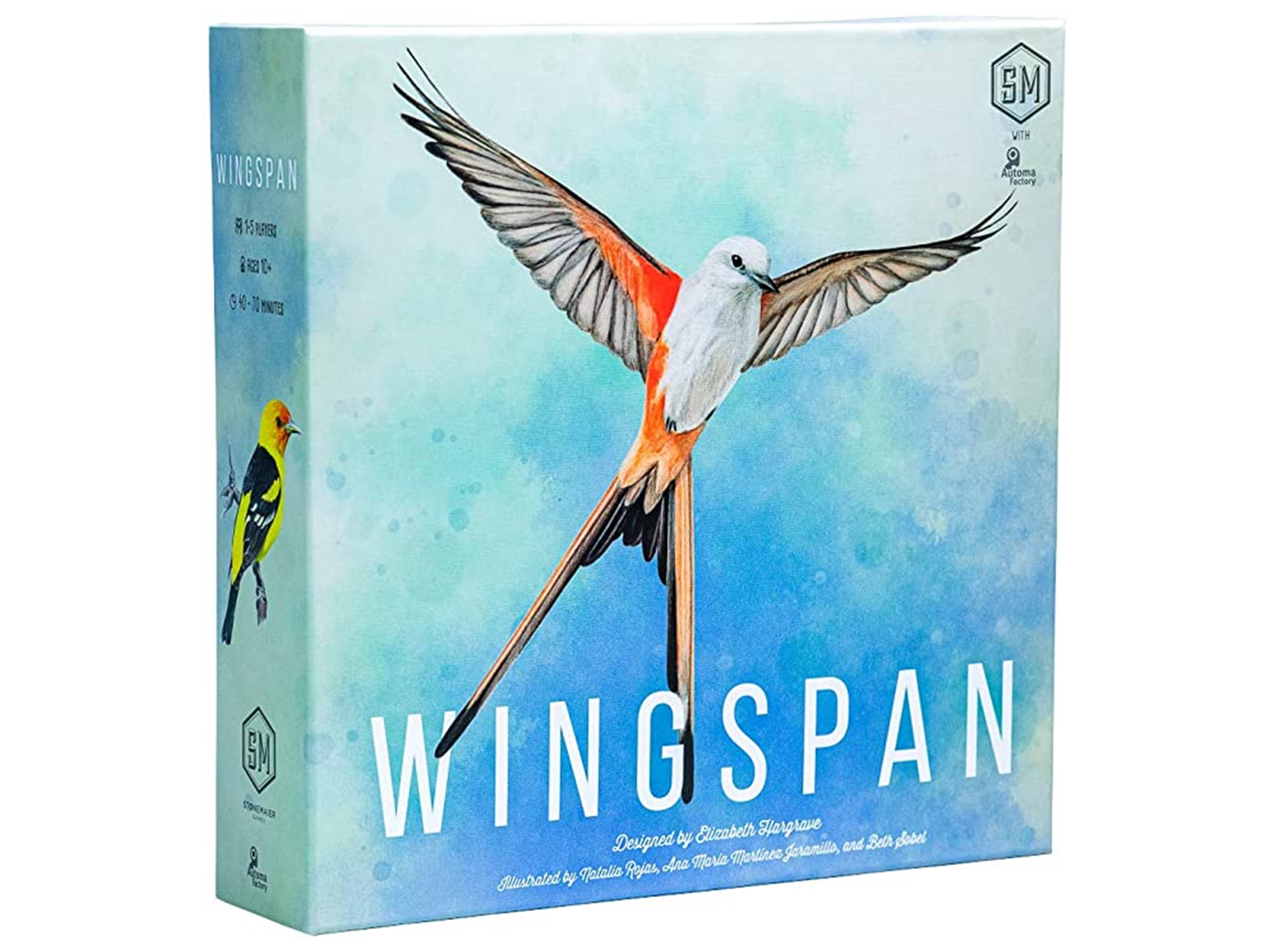
Best: Engine builder
Rating: 9/10
- Publisher: Stonemaier Games
- Difficulty: Medium
- Players: 1 - 5
- Time to play: 40-70 minutes
About as wholesome as a board game can get, players are tasked with attracting birds to their aviary to score points. Birds can be summoned based on their preferred habitat and as the number of birds start to grow, players can use their abilities to create a chain reaction that benefits them such as laying more eggs or gathering more food tokens.
The single player component works against an “AI” opponent known as “Automa” so while there is still a competitive element, players can use a separate deck of cards to determine their counterpart’s moves. Players can even determine how much of a challenge Automa will put up, so there’s plenty of opportunities for replayability.
Terraforming Mars
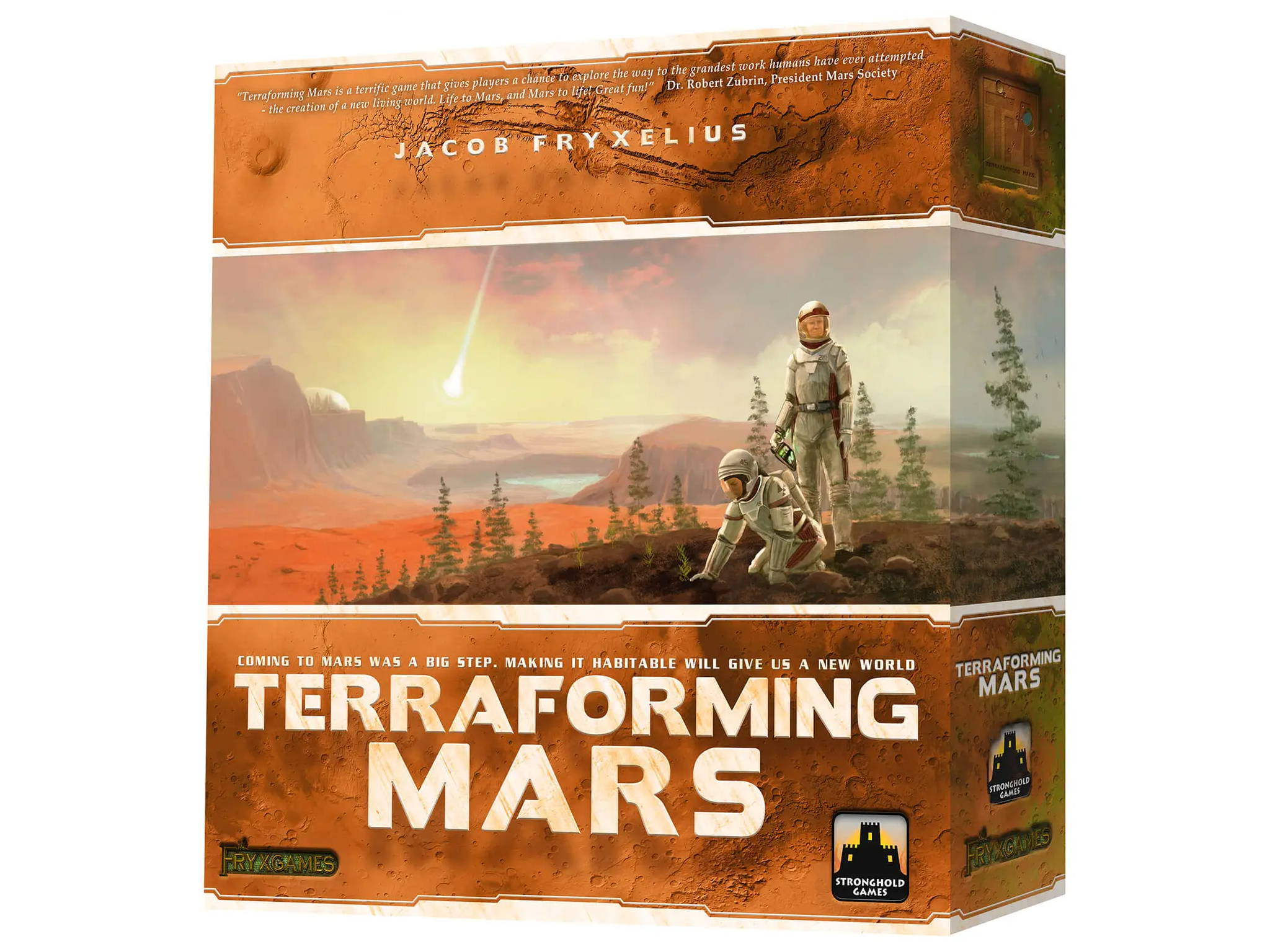
Best: Sci-fi
Rating: 8/10
- Publisher: Stronghold Games
- Difficulty: Medium
- Players: 1 - 5
- Time to play: 120 minutes
In Terraforming Mars, players take control of a corporation as they go through the process of making the red planet inhabitable. This is achieved by creating oceans, building greenhouses and raising the temperature of the planet so that it is liveable. Each turn (or “generation”) gives players a chance to move one step further towards achieving a sustainable space colony.
While a group-based game requires players to score points and complete objectives, the single-player experience is a simple race against the clock, with all parameters (oxygen, temperature and oceans) needing to be completed by the end of the fourteenth turn to achieve victory. Each corporation plays differently, so it’s worth replaying as each one to get a feel for their strengths and weaknesses.
Tiny Towns
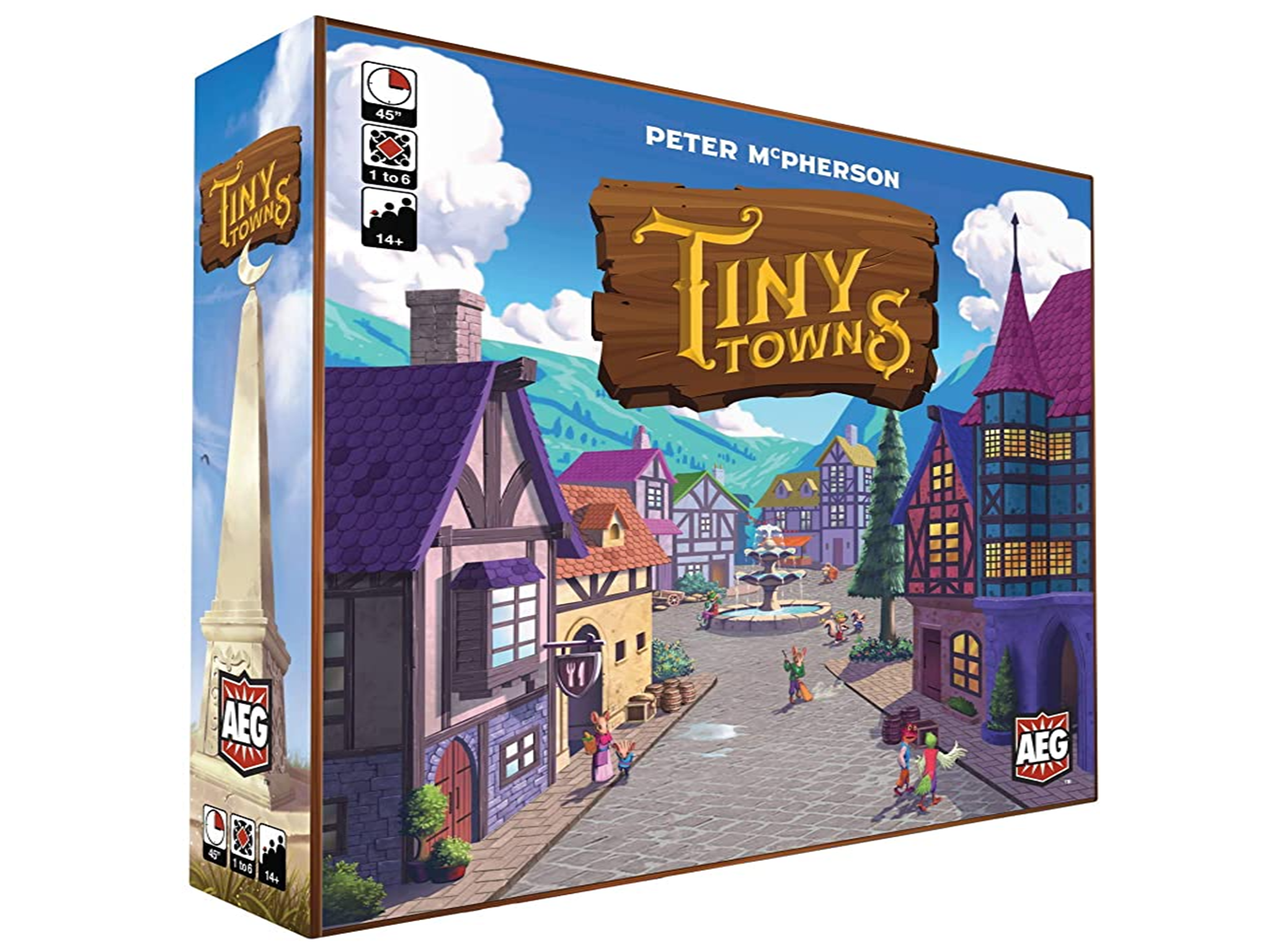
Best: Town builder
Rating: 8/10
- Publisher: Stronghold Games
- Difficulty: Easy
- Players: 1 - 6
- Time to play: 30 - 45 minutes
In Tiny Towns players build, well, a tiny town. Each player has a four-by-four grid that they place resource cubes on to create a new building for their town. Once a building is complete, the tile it is located can no longer be used for construction so the grid gradually gets smaller as the game goes on and players finish when there’s no space left to build.
Its single player variant requires players to draw from a deck of cards rather than choose resources themselves, with players tallying their scores at the end to determine their success in miniature city planning. It’s a game that requires a careful balance of forward planning and resource management with players needing to adapt their strategy based on what resources are available.
Scythe
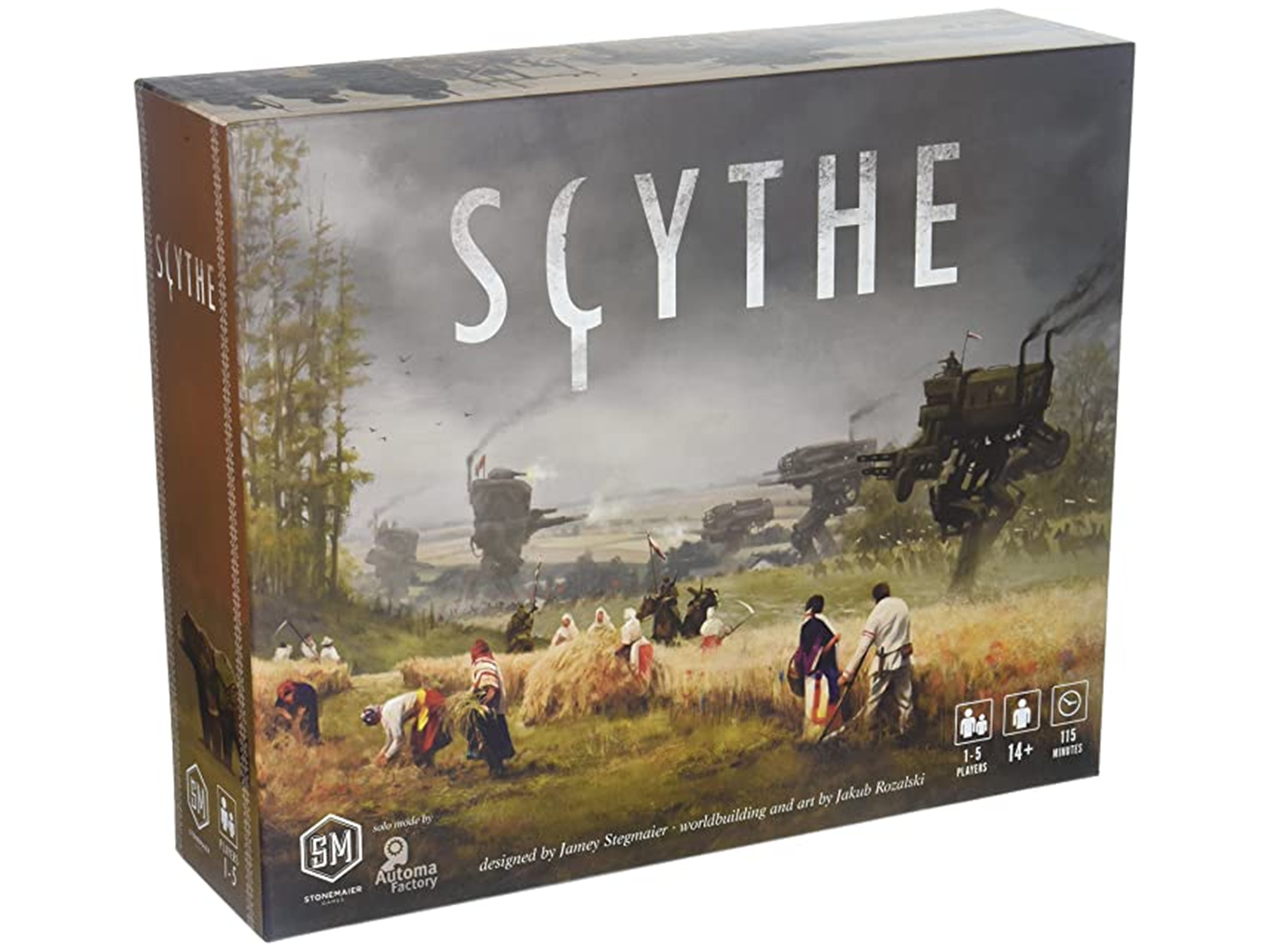
Best: Strategy
Rating: 9/10
- Publisher: Stonemaier Games
- Difficulty: Medium/Hard
- Players: 1 - 5
- Time to play: 90 - 115 minutes
In an alternative 1920’s post-war landscape on the fictional continent of Europa, different factions are all vying for control of resources to rebuild their economy using workers and giant mechs. Players win by having the most money by the end of the game which can be achieved through a number of different objectives, such as controlled resources and even their popularity with the common people. It’s a game with a lot of depth and interlacing systems but it is much easier to follow than its set up would have you believe.
Like Wingspan (£42, Amazon.co.uk), single-player games are played against our old friend, “Automa”. Difficulty levels will differ based on what deck of cards are being dealt, with Automa’s turns determining everything from worker movements to combat. It may take a bit more time to adjust to the updated rules the AI has to follow in order for it to work, but it makes for a decent adversary when the ball gets rolling.
Mansions of Madness
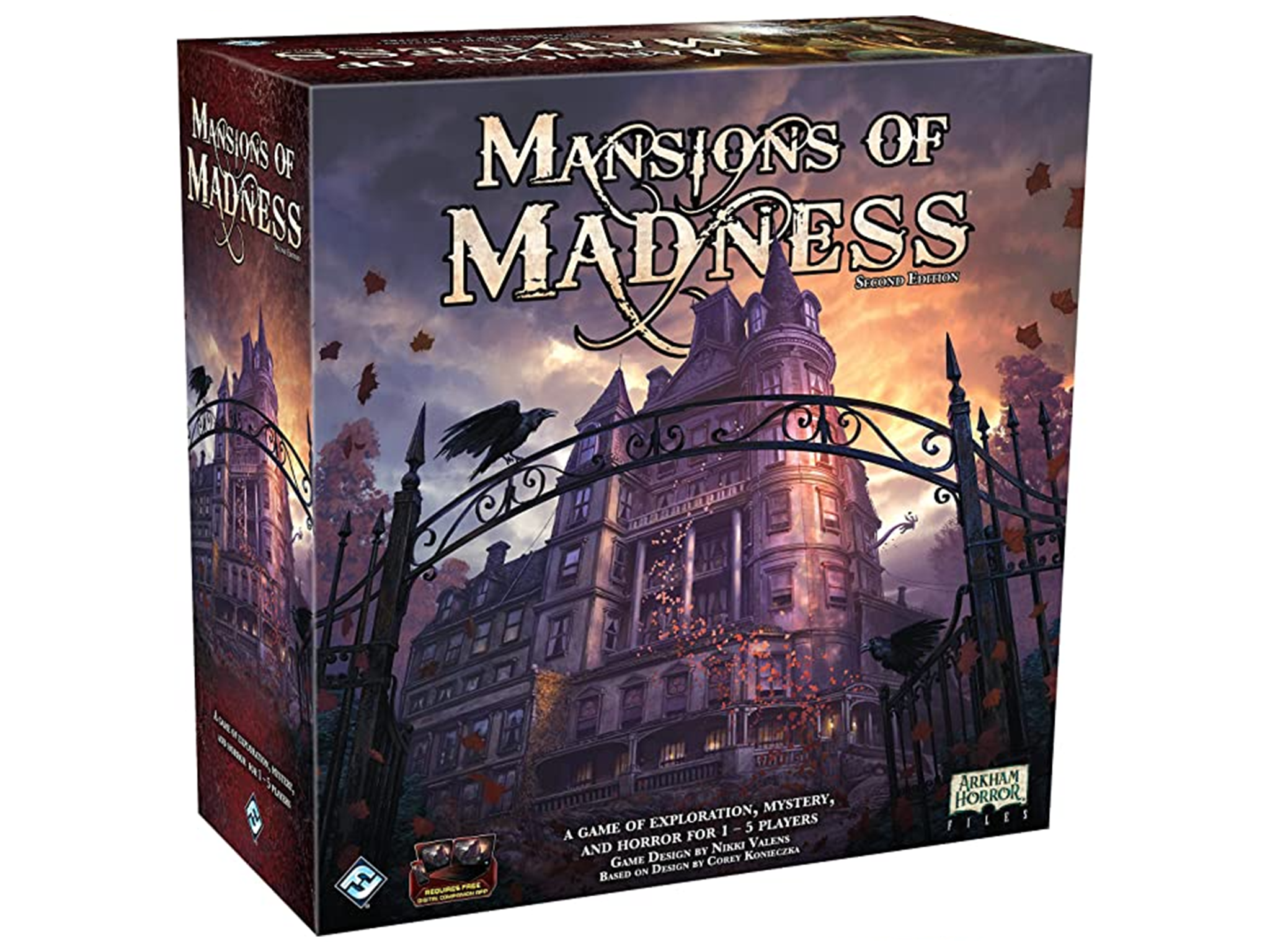
Best: Horror
Rating: 9/10
- Publisher: Fantasy Flight Games
- Difficulty: Easy/Medium
- Players: 1 - 5
- Time to play: 60 - 90 minutes
Mansions of Madness sees characters exploring creepy houses in a Lovecraftian setting to reveal the Eldritch horrors therein. The board game works with an app that dictates what happens next in the story, such as what new rooms, non-playable characters and enemies are revealed.
Players move their character’s figurines around the board to explore different rooms, escape monsters and gather clues hidden around each mansion. As the app is doing a lot of the heavy lifting, it’s a fairly simple board game to learn and makes a one-person game move quite quickly if you’re using it on your phone.
‘Lord of the Rings’: Journeys in Middle-Earth
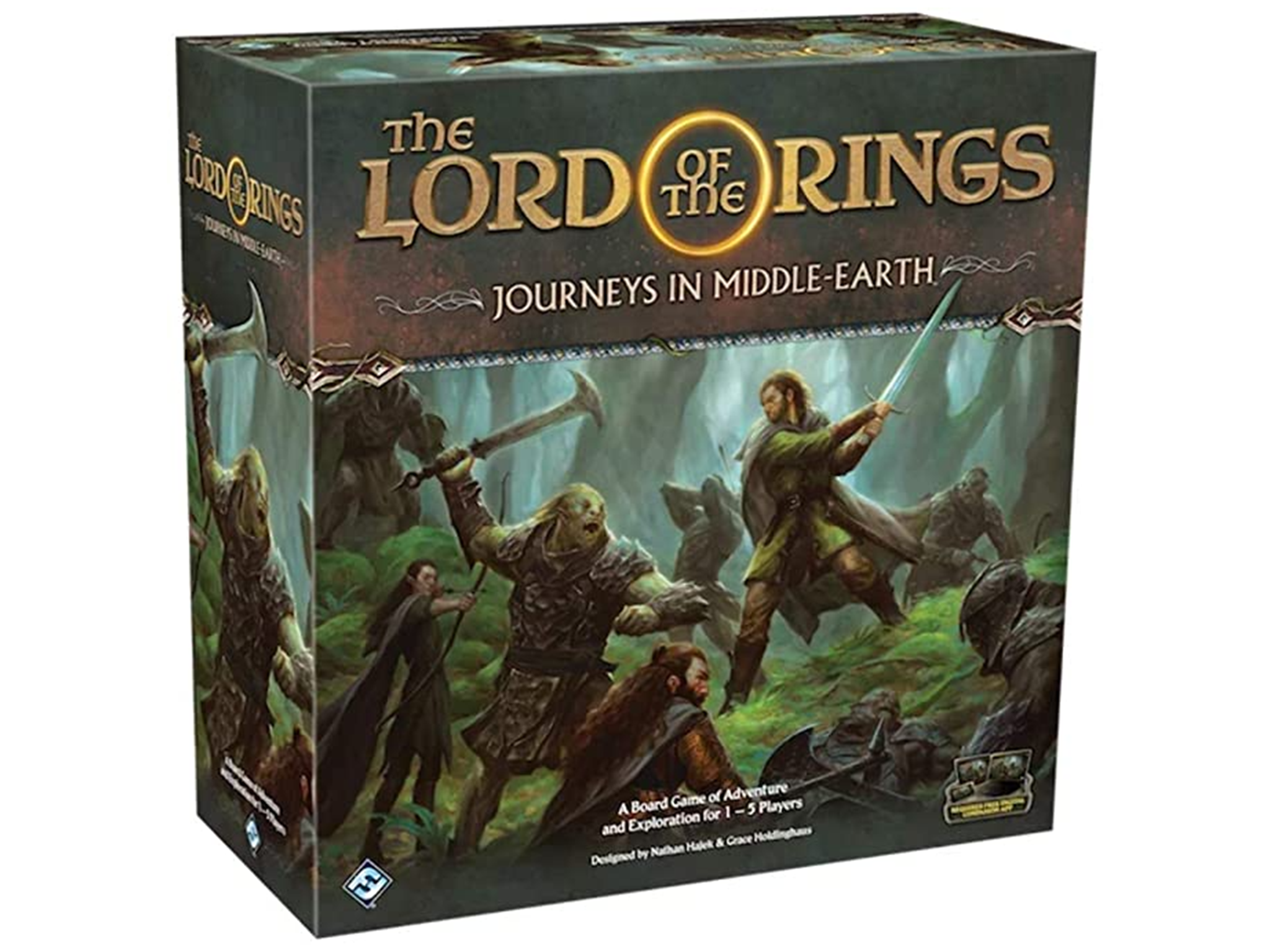
Best: Fantasy
Rating: 8/10
- Publisher: Fantasy Flight Games
- Difficulty: Easy/Medium
- Players: 1 - 5
- Time to play: 60 - 90 minutes
If you’re looking for a similar experience to that of Mansions of Madness (£72.99, Amazon.co.uk) but without the horror, then the official Lord of the Rings: Journeys in Middle-Earth is a great alternative. It has similar rules and a familiar fantasy setting but there are a few mechanical differences, for example, the roles that each character can choose at the start of each game. However, exploration takes much the same form, using a companion app to dictate where enemies come from and what new areas appear in each scenario.
If you are already a Tolkien fan, then this will clearly be the better choice to showcase your devotion and offers enough deviation from Mansions of Madness to be considered in its own category for its simple set up and the quality of its miniatures.
Unlock! Escape Adventures

Best: Escape room
Rating: 7/10
- Publisher: Space Cowboys
- Difficulty: Easy/Medium
- Players: 1 - 6
- Time to play: 60 minutes
Boiling down the experience of a timed escape room into a deck of tarot-sized cards is a great way to spend an hour at home. The first card drawn gives a detailed description of each scenario before an in-app timer is started and the card is flipped to reveal the room.
Players draw numbered cards from the deck according to different points of interest in the room and must use them to find a means of escape. When two corresponding cards (such as a key and a door) have their numeric values added together, another card is drawn to reveal the result, which may not always be the correct solution and can cost you time if you get it wrong. The app can also be used to solve other puzzles such as a opening a padlocked box or finding the right button combination on an electronic door.
Most of the scenarios available in this box of three can be played with just one player but “The Island of Doctor Goorse” will require at least two players. The only drawback is that once a scenario has been completed, the mystery is revealed so it can really only be played once (unless you really like solving puzzles you already know the answer to).
What Next?
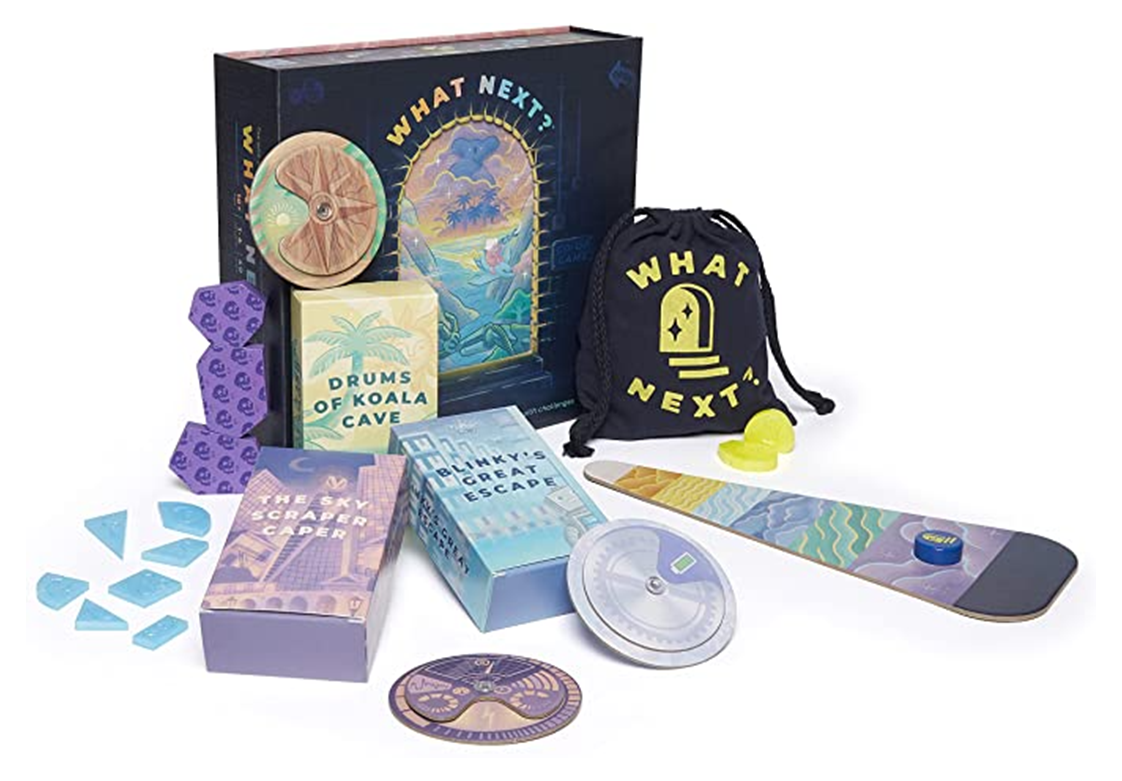
Best: Choose your own adventure
Rating: 8/10
- Publisher: Big Potato Games
- Difficulty: Easy
- Players: 1 - 4
- Time to play: 40 minutes
If you remember choose your own adventure books, where different pages take you down different paths of a branching narrative, then What Next? works in much the same way. There are three decks of cards each with their own story of varying difficulty. Once the first card is drawn, each new card directs players through the deck until the story is resolved, but there are a few twists.
At certain points, each card will task players with completing a “mini-game” of sorts, such as assembling puzzle pieces in a set amount of time, locating different-shaped items in a blind bag or pushing a puck on a miniature shuffleboard. Players also have to be wary of “peril pieces” – essentially stackable cairn stones – and if players knock them down, it’s game over.
Certain mini-games must allow for at least two players but there are variations that can be undertaken if played solo. Naturally, the different story paths players can take also means that each of the three campaigns can be replayed to explore different options but this can only be done a finite number of times before repetition will set in. The mini-games also offer a more dextererous challenge that gives the game some added flare. It’s fun alone but also works well in a group of four as an accessible party game that’s simple to set up.
The verdict: Single-player board games
Our pick for our favourite board game that you can play solo is Gloomhaven, a deeply expansive RPG that will give players plenty of reasons to return just to see their characters grow as the campaign unfolds. It consistently tops the list of best board games ever made for a reason and it really is worth the journey.
If you are completely new to the world of designer board games, then Calico is also a good place to start, if only to prove that tabletop games don’t need to be gritty, complicated affairs in order to be enjoyed. It also helps that it comes in a relatively small box and can be set up and put away in just a few minutes without much fuss.
If you’re looking for a good middle ground between those two extremes, then something like Wingspan or Terraforming Mars are also good games to delve into deeper once you’ve caught the board game bug. They’re both quite popular and can easily be found online and in stores.
Voucher codes
For the latest discounts on toys and activities, try the links below:
Want to double the fun? Read our review of the best board games for two players
